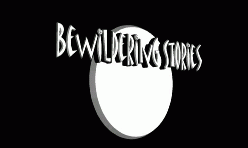Residual Self-Image
by Stephen Heister
Stephen continues the Discussion from issue 98...
Who are we on the Net?
I agree with you, people tend to behave as they always have in any medium as they grow more comfortable. The net being a great example. As the medium has spread and become more acceptable, people have remained themselves. Being one of the last generations to have sacrificed social skills in exchange for computer skills, it depresses me that in this brave new world, sports web-sites and singles pages still outnumber fractal websites and chess clubs. (no offense meant) People have changed the web, not the other way around.
Like any social relationship, there are those that attempt to maintain an image or a certain type of personality. But just like in real life those people tend to keep others at an arms length and never allow people to get close enough to crawl under the truth. The truth being that they probably weren’t very interesting to begin with.
What the internet does do, or any quantity of social contact for that matter is refine the qualities of our personality (if we so chose) that can be improved. For example we write a web-site that describes us in a way that we want to be perceived. Trying to appear mysterious, or intelligent. It’s nothing more than a glorified story until direct social contact forges certain characteristics into habit and who we are. Isn’t that how personality develops? (maybe… not sure…)
So do I think if you pretend to be someone for long enough you turn into them? In a limited way, yes. Dylan and Dostoevsky, changed my life. Made me practice behaving in a certain way until it became habit. I wouldn’t try to copy the style of Ray Bradbury or Douglas Adams. But certainly they influenced me.
What is the relationship between the author and the text?
As someone that has written a thing or two.. (literally, a thing or two) I must admit that my stories reek of me. Sort of. They are exaggerations of my mood, or a magnifying glass to my beliefs. If humans were smarter, they no doubt could read the fingerprint of the author’s psyche in every story. But I’m not that smart. So the relationship must be taken at what I consider is its “face value” and is closely related to the reason I enjoy writing to begin with. There are ideas and concepts that I believe need to be shared with other people. And I have a giant ego.
What is the text?
Words. “Words, words, words, words.” It is the author’s emotion to and the readers reACTION to those words that make it dynamic.
Copyright © 2004 by Stephen Heister
Thank you for the response, Stephen. I think a lot of it ties in with themes that Steven Utley’s essays and poems have raised. We hope other readers will be moved to respond, too.
Your concept of the “dynamic text” is quite different from mine. However, our viewpoints aren’t opposite; they’re complementary. In the Discussion in issue 98, I was referring to the text itself. I implicitly question whether a written text in any medium can be set unalterably once and for all. At an extreme, one can engrave something in stone or inscribe it on bricks; we’d probably have an easier time losing the text than altering it. But all writing — even inscriptions — must first be composed and then transcribed. And forever after, readers will interpret it, and historians may find reasons to amend it.
The dynamism you refer to, Stephen, is the one that takes place outside the text: the reader’s process of interpretation and the author’s process of composition. (It’s usually a mug’s game to talk about “intent”; does even an author fully know?) All those things — author, text and reader — are implied in the four questions that form the basis of all literary criticism:
- What does the text say?
- How does it say it?
- What did it mean in its own time?
- What might it mean for ours?
Thanks again, Stephen, for an interesting response!
Copyright © 2004 by Don Webb for Bewildering Stories

